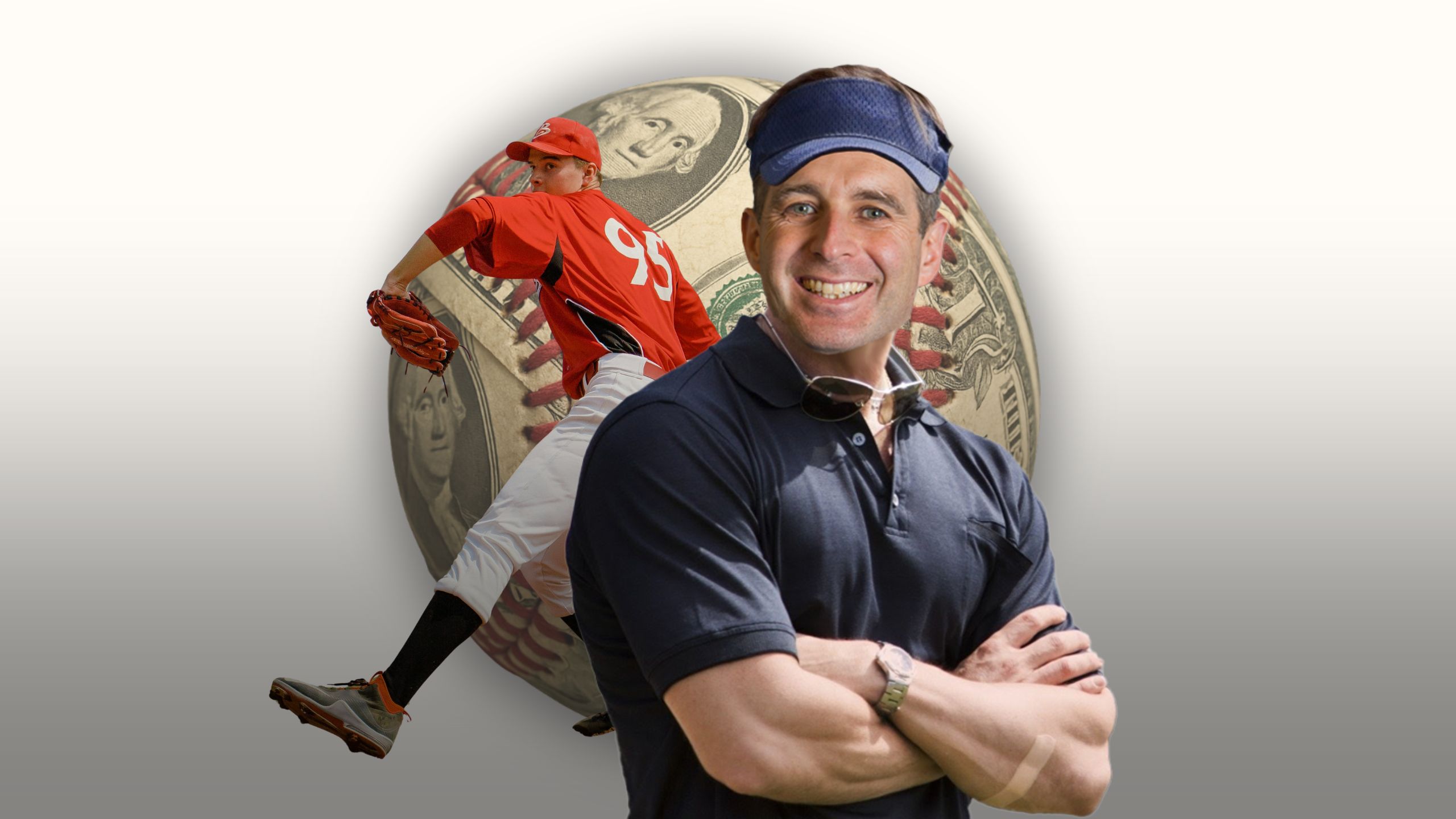Here are five things Moneyball taught me when I rewatched it this weekend—and how digital human roleplay is doing the same for sales enablement.

The 2011 hit movie Moneyball is so synonymous with data-driven success (inside and outside of sports) that I won’t go through the entire premise. But let me give you some Spark Notes.
The movie is based on a true story, following the journey of the Oakland A’s baseball team and its coach, Billy Beane, as they take a unique approach to competing in Major League Baseball.
Played by Brad Pitt, Billy Beane dismisses the usual scouting and recruitment methods, instead crunching numbers to find undervalued players to join their ranks. Talk about Beane counting.
Without spoiling the ending, the team went on to defy expectations, proving that with the right data, the right strategy, and the right system, you don’t need all-star names to build an all-star team.
And this is where the film’s ties to sales performance begin.
The Oakland A’s are forced into shaking things up due to their low revenue, as well as owners who are reluctant to spend money—something I’m sure many sales leaders will already feel is painfully close to home in 2025.
We’re now seeing the same revolution happen in sales training for under-pressure teams.
The future of sales readiness isn’t built on charisma, tenure, or lucky hires. It’s built on understanding what skills you have available, nurturing them, playing smart, being tactical, and coming away with the win.
Here are five things Moneyball taught me when I rewatched it this weekend—and how digital human roleplay is doing the same for sales enablement.
In Moneyball, the A’s identified undervalued players by looking past outdated scouting methods and focusing on metrics that mattered—like on-base percentage.
In sales, charisma can sell, but it’s not a strategy. It also doesn’t always convert—just because you think “I’d buy from them” doesn’t always translate into success.
Sales leaders can’t just rely on their own perceptions; they need to go deeper into identifying (for instance) what makes someone a good closer.
These kinds of things aren’t just desirable traits, but coachable ones.
We saw this blind spot beyond mere perception when building UneeQ Sales Trainer, our AI roleplay solution. With it, sales leaders can run structured, repeatable roleplay simulations that surface real performance indicators.
No guesswork. Just observable skill under simulated stress.
Moneyball replaced outdated stats with sabermetrics—advanced analytics that revealed hidden strengths.
We do the same with conversation intelligence in sales roleplay simulations, making it possible to measure things like:
These insights help sales managers coach the things that matter most, not just what’s easiest to observe on a recorded call or ride-along.

Billy Beane, like all coaches, doesn’t spend their time throwing practice pitches to see where their batters are going wrong. Moneyball would rival The Lord of the Rings trilogy in length if it did.
Instead, baseball coaches analyze the data from their entire team’s practice pitches—most of which come from pitching machines.
Sales leaders need the same tools. They don’t have enough time to roleplay with their entire team, and their reps don’t want that either.
Reps want to be able to practice whenever they want, for as long as they want. And not with their bosses, but with something that resembles, acts, and interacts like their actual buyers.
AI sales roleplay now offers that:
It’s the pitching machine sales reps need. Which also means sales managers aren’t throwing practice pitches themselves, but spend that time instead analyzing good, consistent data and offering more targeted coaching.
Nor are sales managers guessing whether a rep is ready for a big deal—they’ve seen reps pass the equivalent of a game-day pressure test!
Moneyball was never about stars. It was about systematically developing value.
I mean sure, would it have been such a box office hit if the movie was called Systematically Developing Value? I don’t think even the draw of Brad Pitt would have saved it.
But you catch my point; and the same applies in sales. With AI simulations, you can:
It’s not just about hiring all-round sales superstars, but finding who shines in what conditions, so everyone can over-perform in their role.

At the heart of Moneyball was this idea: you don’t need superstars if you’ve got a system that works.
I strongly believe UneeQ Sales Trainer hands sales teams that very system, giving them a repeatable, data-rich method for training and certifying reps.
Sales Trainer also:
Instead of relying on one rep’s “magic touch,” you build a bench of confident, capable performers—ready for any conversation.
The real-life people behind the Moneyball story changed how baseball teams think about talent. It made coaching and development a science, and that’s something I love, as a sports fan and a sales leader myself.
The most exciting part is that AI is doing the same for sales coaching.
Sales teams never used to even have the equivalent of a batting cage for reps to practice in. Now they have the cage, the pitching machines, and the data for sales leaders to make seriously smart data-driven decisions.
If you’d like to follow in the footsteps of the greats, I encourage you to get a demo of UneeQ Sales Trainer. We can’t promise to turn you into Brad Pitt, but (at the risk of mixing motivational movie references) we can help “show you the money.”
